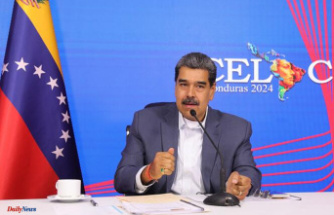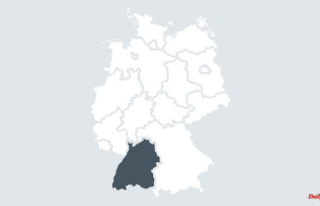The food industry is also feeling the effects of the Ukraine war drastically. It groans under high energy and raw material costs. Agriculture Minister Backhaus sees the time for fundamental changes.
Rostock (dpa/mv) - According to Mecklenburg-Western Pomerania's Agriculture Minister Till Backhaus (SPD), the Russian war of aggression against Ukraine and its far-reaching consequences also require a rethink in the agricultural and food industry. "A supply mainly from regional economic cycles - and that worldwide - could make regions less susceptible to crises in crisis situations and also strengthen micro, small and medium-sized businesses on site through local value creation," said Backhaus on Thursday at the 5th North German Nutrition Summit in Rostock-Warnemünde . The minister said nothing about the fact that this would also reduce the export opportunities for German products.
The strengthening of regional economic cycles is a long-term process. The current task is to help companies and consumers to cope with the increase in energy and food prices. "Just a few months ago, hardly anyone could have imagined that people in Germany would one day be faced with the question of whether they want to eat or heat," Backhaus made clear of the seriousness of the situation.
Despite the Corona crisis, the country's food industry can look back on a good year. Sales increased by 13.2 percent in 2021 compared to the previous year. The industry employs more people and the export rate has risen to an unprecedented 20.9 percent. But Backhaus pointed out that the high sales figures are primarily the result of enormous price increases for food.
"We are currently experiencing that the consumer is reacting very sensitively to these price increases: branded products, but also the organic sector are showing a decline in sales," stated the minister. Discounters are the winners. This is not good news for producers of high-quality specialties. "In the long run, you have to make it clear to people that the next vacation trip or the latest technical gadgets are not important to them, but that they should pay attention to the importance of local production, especially with regard to resource conservation and the consolidation of regional cycles", explained Backhaus.
Even before the start of the food summit, the organizer of the state agricultural marketing association (AMV) made it clear that the food industry in Mecklenburg-Western Pomerania is looking to the future with concern. The current situation is "extremely unsatisfactory" for the majority of companies, in particular because of the high energy and raw material prices, stated AMV chairman Tobias Blömer. In a recent survey, companies in the North East described their energy situation as alarming.
According to Blömer, the food industry in Mecklenburg-Western Pomerania is the sector with the highest turnover within the manufacturing industry. The turnover of companies with 20 and more employees reached around 4.2 billion euros in 2020 and was thus twice as high as that of mechanical engineering. With 18,000 employees, every fourth industrial employee in the country works in the food industry.












